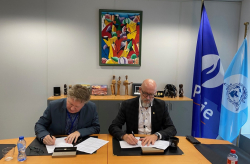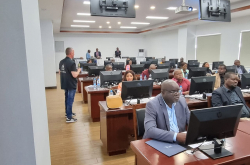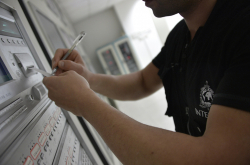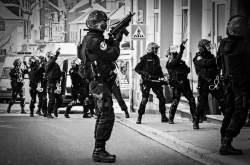Police around the world are confronted with complex crimes that cross national borders, time zones, languages and jurisdictions.
Transnational organized crime groups are sophisticated and flexible, quick to adapt their models and routes in order to avoid detection. Criminals and terrorists exploit advances in technology, digital connectivity, global travel and trade flows.
Information for police: faster, smarter, everywhere

Police around the world are facing an exponential growth of data – a kind of tsunami – that will only continue to gather strength.
As the only organization to facilitate global police cooperation and information sharing globally, INTERPOL can help turn this data tsunami into a valuable source of actionable intelligence.
It is time to shift gear and harness the technological opportunities that can bridge the gaps in global security.
Technology underpins everything we do
The I-CORE Programme was developed following a rigorous review and comprehensive assessment of our current capabilities, as well as new services to develop, based on input from our member countries and an in-depth cost-benefit analysis.
These studies have confirmed we deliver the greatest value to our member countries through the hosting and exchange of data.
This is why we are focusing in the first instance on three projects to ensure police data can be accessed faster, smarter, everywhere:
Delivering our Global Policing Goals
I-CORE will reinforce the efforts of the international community in achieving global security. Its cross-cutting technological framework will support transnational investigations into all types of crime and will be fundamental to delivering INTERPOL’s Global Policing Goals.
This innovative programme will allow our member countries to adapt and strengthen their response to national and regional crime-fighting priorities. Ultimately, it will bring us closer to fulfilling our vision of “connecting police for a safer world”.
Related news

Breakthrough in longstanding Dutch missing person case
11 October 2024
INTERPOL welcomes new DNA legislation in Belgium
11 April 2024









